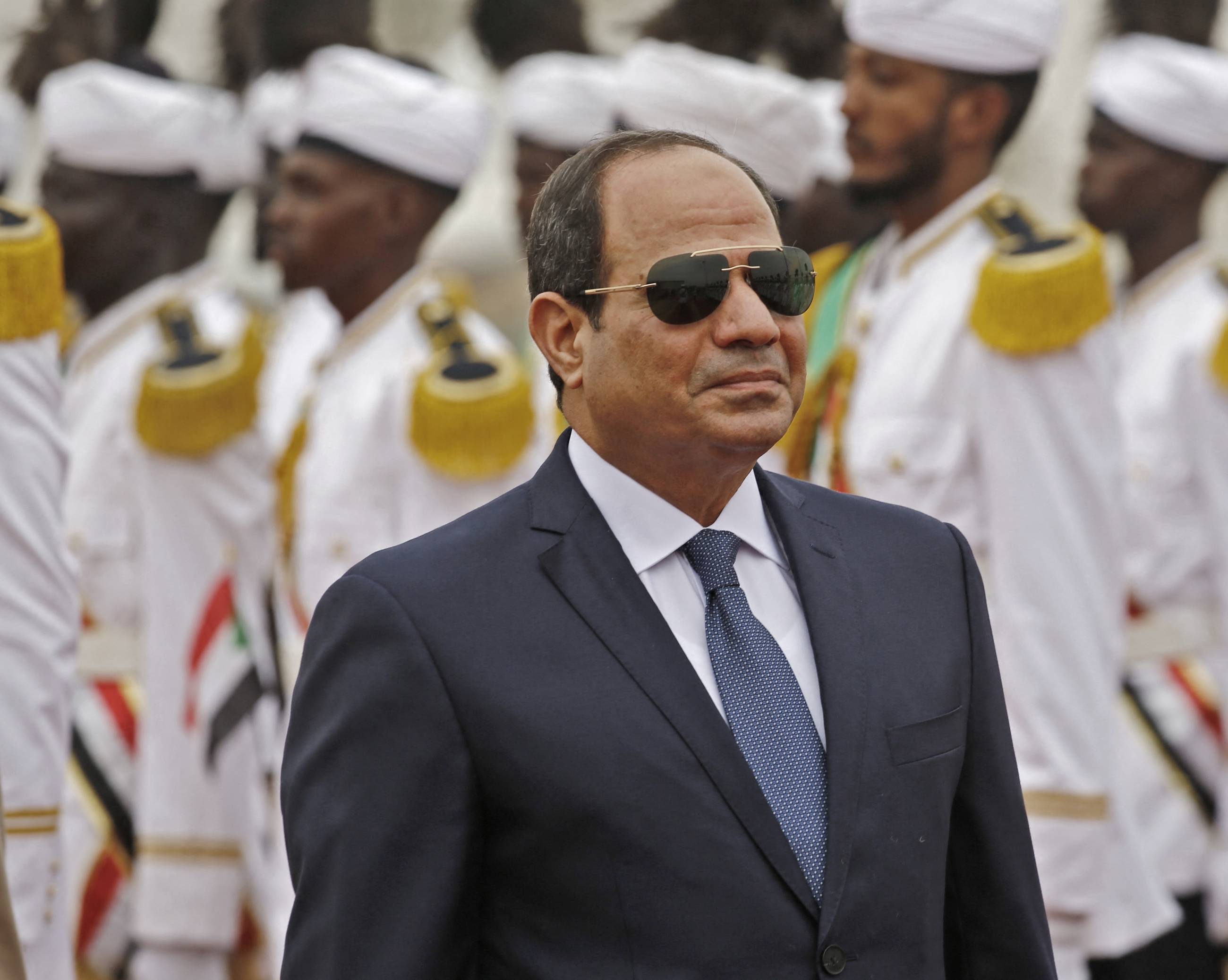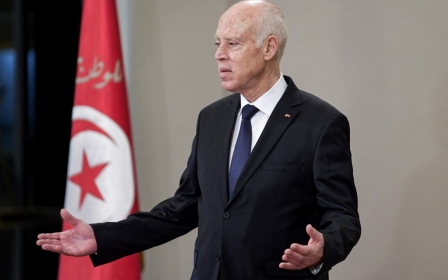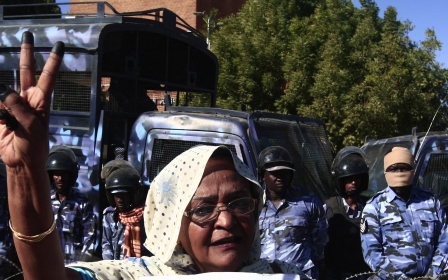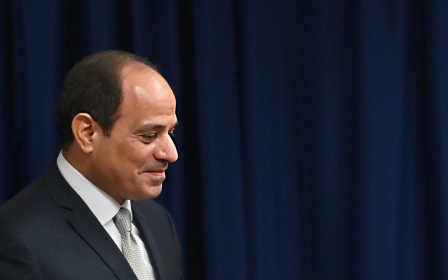2021: How Sisi became a role model for Arab coup plotters

Over the past year, a pair of coups aborted nascent and promising democratic transitions in Sudan and Tunisia. Both appeared to be pulled straight out of the Egyptian playbook on how to launch a coup.
On the eve of General Abdel Fattah al-Burhan’s October coup in Sudan, the Sudanese foreign affairs minister, Mariam al-Sadiq al-Mahdi, expressed shock and disappointment that her Egyptian counterpart, Sameh Shoukry, was not answering her phone calls. Shoukry also failed to express solidarity with the ministers and officials detained by Burhan, unlike other state governments who publicly rejected the coup.
The Sudanese military bet on the emergence of disputes and splits within the civilian bloc to lay the groundwork for a coup
Mahdi’s comments, given in an interview with Al Jazeera, reflected both her own political naivete and the influential role that the Egyptian regime has played in the Sudanese coup. For years, Shoukry has marketed President Abdel Fattah el-Sisi’s coup regionally and internationally. Egypt’s role in Burhan’s coup - which itself was just a matter of time - is plain for all to see.
Over the past two years, the imbalance between the civilian and military components of Sudan’s Sovereign Council has been evident. Prime Minister Abdalla Hamdok did not enjoy any real authority that would allow him to operate independent of the military.
For its part, the Sudanese military bet on the emergence of disputes and splits within the civilian bloc to lay the groundwork for a coup. Similarly, in Egypt in 2013, Sisi exploited the differences between the Muslim Brotherhood and civil forces in order to seize power.
New MEE newsletter: Jerusalem Dispatch
Sign up to get the latest insights and analysis on Israel-Palestine, alongside Turkey Unpacked and other MEE newsletters
Anti-democratic roadmap
There is no way that Sudan’s northern neighbour, Egypt, ruled by a military general who came to power through his own bloody coup eight years ago, would accept on his southern border a civilian-ruled state - let alone a democratic one. Indeed, Cairo has never concealed its concern on this topic, having repeatedly expressed its dissatisfaction with Sudan’s civilian-military partnership.
According to Egyptian sources quoted in the Wall Street Journal, Egypt’s intelligence chief, Major General Abbas Kamel, visited Sudan several days before the coup and met Burhan. He reportedly refused to meet Hamdok and told Burhan in a text: “Hamdok must go.” The newspaper also reported on a secret visit by Burhan to Cairo a day before his coup, during which he briefed Sisi and sought his support.
Egypt declined to support a statement issued by Sisi’s regional and international allies (including Saudi Arabia, the UAE, the US and the UK) calling for the return of Sudan’s transitional civilian government, and an end to the state of emergency imposed by Burhan on the eve of the coup.
A simple analysis of Burhan’s speech as he announced his coup also suggests that it was written in Cairo rather than Khartoum, and the measures taken by Burhan since then have followed the same path that Sisi took in 2013. It is as though Sisi’s actions have become a roadmap for anyone looking to turn against their civilian partners.
Transition disrupted
By now, the steps are well known: exclude civil opposition under the pretext of preserving the state; disrupt transitional processes; appoint a nominal government; and control the political process. We should not be surprised if a presidential election announcement is made in Sudan in the coming months, in which Burhan or his deputy, General Mohamed Hamdan Dagalo, aka Hemeti, opts to run.
Tunisian President Kais Saied used the same language, style and methods to carry out his coup against the constitution, government and parliament in July. And the same may soon happen in Libya, as presidential elections approach later this week.
What Cairo wants from Khartoum and other Arab capitals that dream of establishing democratic civilian rule is clear and explicit - it will not accept civilian authority, whatever the price, even if direct intervention is needed to abort it.
Arab democracy has become something of a red line for Sisi and the counter-revolutionary axis, as they seek to protect their image, power and influence in the region. It can thus be expected that with the increasing pressure of the Sudanese street and civil forces on Burhan and his companions, the greater the Egyptian intervention will be.
This means that Sudan faces a difficult road ahead - and civilians will pay a high price for confronting Burhan and his backers.
The views expressed in this article belong to the author and do not necessarily reflect the editorial policy of Middle East Eye.
Middle East Eye delivers independent and unrivalled coverage and analysis of the Middle East, North Africa and beyond. To learn more about republishing this content and the associated fees, please fill out this form. More about MEE can be found here.



![A woman holds a sign raeding in Arabic "[Egyptian president] Sisi you coward, you support [Sudan's top army general] Burhan, looter of Sudan's resources", during a demonstation against the military coup in Sudan, in the capital's twin city of Omdurman, on November 13, 2021 afp](/sites/default/files/sudan%2C%20anti-coup%20protester%2C%20november%2C%202021%2C%20afp.jpg)



